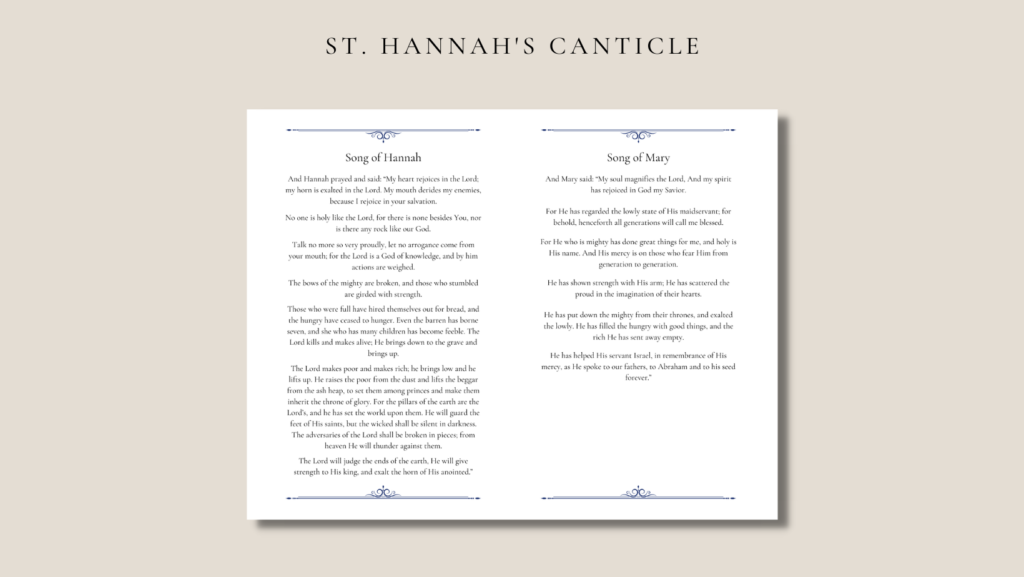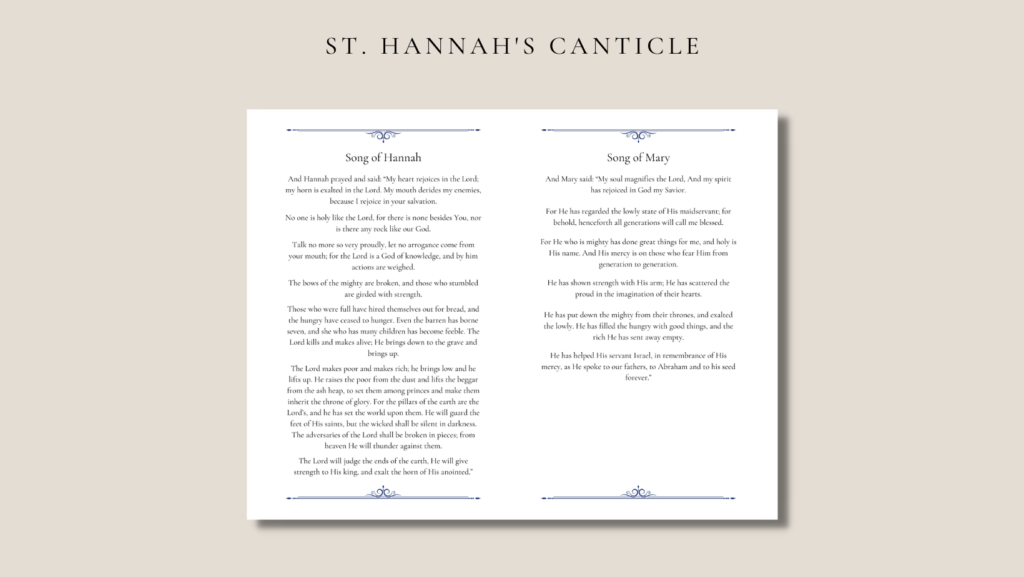
History
In our introduction to St. Hannah, Old Testament matriarch and mother of Samuel, we discussed her connection to the Virgin Mary and the significance of these two women’s vocations. Some of the greatest similarities between these women can be seen in the words of the songs that they sing in praise of the Lord’s fulfillment of his promises to them. The miraculous conception of each woman’s son gives us a picture of God’s faithful promises to us and the revealment of his plan that he enacts in and through us.
In both the books of Samuel and Luke we are given a glimpse of the birth of a son who is born to serve God. These two son’s mothers then promise to give them to the Lord. They are born of God-fearing women who seek to do God’s will. However the parallels between the stories don’t end there: Samuel and Jesus both live faithful lives as well growing up to serve and lead Israel.
The Mothers’ Songs
Hannah and Mary respond to God’s promises and their fruitfulness with outstanding confessions of their faith. In their responses and songs are great similarities: they articulate in song that their sons will become prophets of Israel and that through them being “empty vessels” God has used them to bring his plan to completion. Their joyousness pours out from them, with the two women’s songs of praise mainly centering around God’s faithfulness to them and his greatness and lordship over the earth.
Living centuries before Mary, the Virgin Mother surely knew Hannah’s hymn of praise. Some believe that Mary’s knowledge of his Scripture surely served as a pattern for her own song, with her having Hannah’s words “hidden in her heart.” What a lesson this is for us to consider. Like these women, we too ought to sing songs of praise to the Lord and use their confessions to model our own.
As a way to commemorate Hannah, we suggest that you meditate on the words of these two women and utilize them as a way to pray to the Lord and thank him for the work he does in and through us. We’ve created the following document as a way to do just that: consider printing it off and placing it in a frequented location (such as over your kitchen sink or by your bathroom mirror) so that you can join in these women’s songs each and every day. The similarities between the canticles never cease to amaze and encourage us in our own prayer lives.


